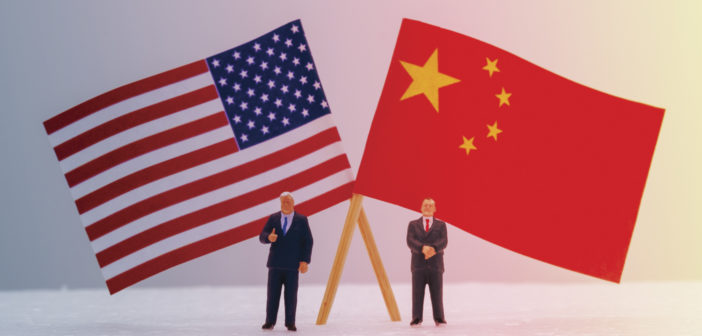President Trump recently escalated the trade dispute with China by imposing new tariffs and labeling China as a “currency manipulator.” It is unlikely that this escalation will be permanent, as President Trump has an incentive to bring the dispute to a speedy resolution.
In the second quarter of 2019, gross domestic product (GDP) grew by an estimated 2.1 percent. While healthy, this is less than the goal of three percent growth set by the Trump Administration. Non-residential fixed investment, which is investment by business in structures and equipment, declined, subtracting 0.83 percentage points from GDP growth. Had investment not declined, GDP would have grown by nearly three percent. The decline in business investment is blamed on uncertainty caused by current trade disputes, particularly with China.
Economic growth is vital to President Trump’s political fortunes, as he faces reelection next year. Historically, the economy is the only thing that determines whether or not an incumbent president is reelected. No president since World War II has lost reelection during a strong economy. George W. Bush was reelected in 2004 with a growing economy and falling unemployment, despite an unpopular Iraq war. In contrast, George H.W. Bush was defeated for reelection because of rising unemployment from the 1991 recession, despite a popular war that resulted in a quick victory. Jimmy Carter was defeated in 1980 due to rising unemployment during the 1980 recession. Presidents Eisenhower, Nixon, Reagan, Clinton, Bush and Obama were all reelected in growing economies with low or falling unemployment. Thus, a strong economy is vital to a president’s chance for reelection.
Yale University Economist, Ray Fair, quantifies this in his presidential election forecasting model. Fair finds that three variables predict the two-party vote share each major party candidate will receive: the growth rate of per capita GDP during the first three quarters of an election year, the inflation rate in the first 15 quarters of the administration, and the number of quarters that per capita GDP growth rate has exceeded three percent. Both per capita GDP growth and inflation have averaged close to two percent over President Trump’s term, with no quarters with more than three percent growth. This model predicts the President would receive 54.3 percent of the two-party vote share, making him a heavy favorite for reelection. Continued escalation of the Chinese trade dispute would reduce GDP growth and increase inflation, worsening the President’s predicted vote share and hindering his reelection chances.
In contrast, settling this dispute with a new trade agreement would likely result in a stock market rally, which would increase growth, lower inflation and thus, further increase the President’s odds of being reelected. President Trump and his advisors likely know this. Thus, I expect that in late 2019/early 2020, a U.S./China new trade agreement will be reached, causing a stock market rally and a growth increase, which will increase President Trump’s political fortunes in an election year.














